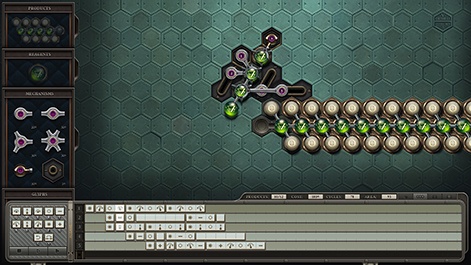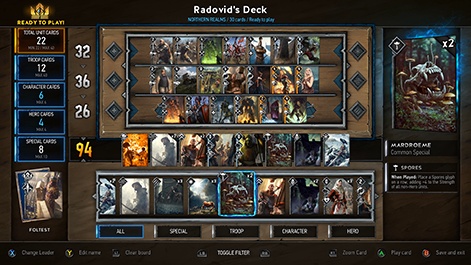The CD Projekt-owned storefront GOG.com is seen by many as the No.2 in the world of digital PC games retail.
The top spot obviously goes to Steam, naturally, but GOG has gone from a niche retailer that sold old video games that were generally out of circulation to a bustling storefront full of the newest releases. In fact, the head of global communications, Lukasz Kukawski, calls out a number of exclusive or Day One releases that have hit the platform in the last year.
"2017 was very good for GOG.com, and plenty of things happened. We’ve released almost quarter of the whole catalogue in 2017 alone, including day 1 releases including Divinity: Original Sin 2, Hellblade: Senua’s Sacrifice, Cuphead, or ELEX, as well as exclusive classics like Jazz Jackrabbit series, SWAT 4, Pizza Tycoon series, The Suffering and more, all DRM-free.GOG Galaxy, our optional client to manage your games library and play multiplayer, went out of beta with its 1.2 update," he says.
"It's the biggest one up to date and added plenty of requested features like Universal Cloud Saves, a technology which allows us to introduce cloud save support to classics which never had that option before, and new games on GOG.com."
Additionally, the company has been adding a number of features to its client, as well as improving the infrastructure due to the company also running CD Projekt RED's Witcher-inspired card game Gwent.
"New features included in-game overlay, built0in FPS counter and screenshot tool, as well as an array of expanded settings allowing users to customize the client to their needs," Kukawski says.
"Of course that doesn’t mean we’ve stopped working on GOG Galaxy. On the contrary, we’re very busy working on new updates that we will reveal in the near future. Last year also marked the release of Gwent Open Beta, which was a new experience for CD Projekt RED and GOG.com as well, since it’s the first game as a service for both companies. Gwent is also a project on which both companies work really closely together - we’re responsible for the whole backend infrastructure as GOG Galaxy is powering all multiplayer, matchmaking and payment aspects of the game. So as you can see, just those few things mentioned made last year pretty busy for us, and there were plenty of other things happening. And we’re definitely not stopping in 2018, as this year we will be celebrating GOG.com’s 10th anniversary."

One of the hottest topics in the PC games space right now is curation - what games should be allowed on certain platforms. Earlier this year, Opus Magnum was rejected from GOG by its curation team, something the store came under fire for.
By contrast, Steam has said it will be letting any and all games onto its platform, so long as projects weren't "illegal" or "trolling".
Kukawski says that curation is absolutely vital so that consumers can have an idea of what is worth their hard-earned money.
"Nowadays, the biggest issue for gamers is not getting access to games, or buying them, but actually to find great games to play next. With the amount of new releases happening every day, it’s really hard to stay on top of what is worth your money and your time," he explains.
"Discoverability is the main issue both for developers who want to get the best possible visibility of their games and for gamers who look for new and interesting titles they can play next. That’s why we believe curation of the offer is so important. That’s why we put so much effort and attention in looking at all the releases and hand-picking the gems. Our goal is to provide GOG users with the best selection of DRM-free games, so if they pick any game from the catalogue, they know it offers a great experience and is worth their time. And we know GOG users appreciate such approach."
Discoverability is the main issue both for developers who want to get the best possible visibility of their games and for gamers who look for new and interesting titles they can play next. That’s why we believe curation of the offer is so important
Asked specifically what GOG's curation policy looks like, Kukawski says it's a tricky - but vital - process.
"It is definitely a challenging goal, but we’re up for it and we believe it’s well worth it," he says.
"Our main policy in terms of the curation process is that we’re looking for good games that fit in the GOG.com’s offer. First and foremost we’re looking for titles which go along our users’ tastes - like story-driven experiences with nicely developed characters, games with innovative and cool mechanics, engaging gameplay or basically the ones that are requested by the large part of our community. If a game, for example, is extremely beautiful, but the mechanics are very simple and the gameplay is limited we won’t be interested in adding such game to GOG.com.
"We have a dedicated business development team who is constantly on the lookout for new and interesting games. Every game that is considered to be released on GOG.com is reviewed within the company - first by one of many reviewers (anyone in the company can be a reviewer) and then by the whole business development team. At the very end there is a voting inside the business development team and if a game passes, they are reaching out to developers and publishers of those games with an offer to release them DRM-free on GOG.com. Of course, developers can also submit their games on their own through our form. So as you can see, there are many people involved in the whole process. But even that doesn’t mean we’re sometimes not making mistakes, like with Opus Magnum. It doesn’t happen very often, but if we see that our users are very interested in a certain game, we can go back to it and reconsider releasing it on our platform. After all, we’re doing all of this for our users."

With this approach to curation, as well as its DRM-free policy on releases, Kukawski sees GOG as being in a pretty strong position in the market.
"We see ourselves as the one and only true alternative to Steam," Kukawski says.
"We’ve created a platform with an online store and optional client, we’re providing our users with GOG games from different publishers and developers, and not just reselling keys. Our unique approach to digital distribution, by offering all games DRM-free, curating the offer to pick exceptional and unique titles, as well as releasing all-time classics compatible with new operating systems, made GOG.com stand out in the crowded market of online stores with game keys. We keep on developing what we believe to be the most gamer-friendly place, with things like GOG Connect that allows you to claim your DRM-free copy of eligible Steam games you already own, GOG Galaxy an optional client with features like cloud saves in classic and new games, rollback option to restore previous versions of games, and our focus on utmost care about GOG users.
"We believe that all this is making a difference in the digital distribution world - and we’d like to put a dent in the universe."













